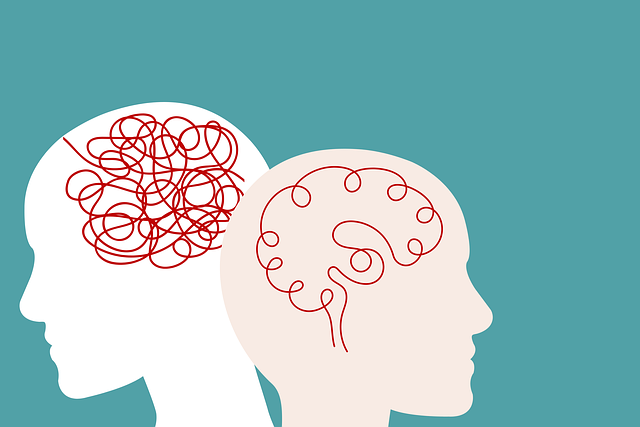Mindfulness meditation, an ancient practice gaining modern prominence in therapy, particularly Centennial Interpersonal Issues Therapy (CIIT), equips individuals with skills to manage emotions and focus on present moments without judgment. Creating a dedicated mindfulness space at home, with calming elements, enhances mental wellness and supports stress management, resilience building, and improved communication strategies vital for interpersonal therapy. CIIT incorporates breathing exercises and Emotional Intelligence techniques during meditation to improve self-awareness, communication, empathy, and relationship dynamics. Integrating mindfulness into daily life, through practices like mindful breathing and gratitude, extends its benefits beyond formal sessions, fostering mental well-being even in high-stress environments.
“Unwind and embrace a century-old practice with our comprehensive guide to mindfulness meditation. This article explores how Centennial Interpersonal Issues Therapy can benefit from this ancient technique, offering a path to improved mental well-being. From understanding its core principles to practical tips for beginners, we’ll navigate you through the process. Learn techniques to create a dedicated space, master meditation exercises, and discover methods to integrate mindfulness into your daily routine, fostering a sense of calm that extends beyond each session.”
- Understanding Mindfulness Meditation: A Foundation for Centennial Interpersonal Issues Therapy
- Preparing for Practice: Setting the Intentional Space for Mindful Moments
- Techniques and Exercises: Navigating the Path of Mindfulness Meditation
- Integrating Mindfulness into Daily Life: Sustaining Peace Beyond the Session
Understanding Mindfulness Meditation: A Foundation for Centennial Interpersonal Issues Therapy

Mindfulness meditation is a practice that encourages individuals to focus on the present moment, observing their thoughts and emotions without judgment. This ancient technique has gained significant prominence in modern times, especially within therapeutic contexts like Centennial Interpersonal Issues Therapy. By cultivating awareness of one’s internal experiences, mindfulness serves as a foundational practice for addressing various interpersonal challenges.
In the realm of mental health, understanding emotional regulation is crucial. Mindfulness meditation aids in recognizing and managing intense emotions, which can be particularly beneficial for those navigating mental illness stigma reduction efforts. Regular practice allows individuals to develop a deeper connection with their thoughts and feelings, fostering improved self-awareness and coping strategies. This, in turn, can enhance overall mental wellness, as discussed in popular mental wellness podcast series production, where mindfulness is often featured as a core component of well-rounded therapeutic approaches.
Preparing for Practice: Setting the Intentional Space for Mindful Moments

Creating a dedicated space for mindfulness meditation is a powerful step towards fostering mental well-being. Before beginning your practice, take time to prepare and set an intentional environment that supports focus and reflection. Consider transforming a quiet corner of your home into a sanctuary where you can retreat during your practice. A peaceful setting with minimal distractions can enhance your ability to connect with the present moment.
Surrounding yourself with elements that promote mindfulness can be beneficial. This might include soft lighting, soothing scents like lavender, or even artwork that inspires calmness. By creating this intentional space, you’re not just preparing for a meditation session but also cultivating an environment conducive to stress management, resilience building, and effective communication strategies, as Centennial Interpersonal Issues Therapy emphasizes.
Techniques and Exercises: Navigating the Path of Mindfulness Meditation

Mindfulness meditation is a powerful tool for navigating interpersonal issues and promoting emotional well-being. Centenal Interpersonal Issues Therapy (CIIT) incorporates various techniques to guide individuals on their path to mindfulness. One fundamental exercise involves focusing on the breath, which helps to anchor the mind in the present moment, calming mental chatter and reducing stress. By observing each inhalation and exhalation without judgment, practitioners learn to cultivate a non-reactive awareness that can be applied to daily interactions.
Additionally, emotional intelligence (EI) plays a crucial role in mindfulness practice. EI techniques, such as recognizing and understanding one’s emotions, enable individuals to approach meditation with self-compassion and curiosity. This fosters mental health awareness and emotional well-being promotion techniques, allowing for deeper connection with oneself and others. Through regular practice, mindfulness meditation can transform interpersonal dynamics by enhancing communication, empathy, and overall resilience in relationships.
Integrating Mindfulness into Daily Life: Sustaining Peace Beyond the Session

Integrating mindfulness into daily life is a key aspect of sustaining peace and calm beyond the formal meditation session. It’s not just about finding a quiet moment to sit; it’s about weaving mindfulness practices into your everyday routines, turning them into habits that support your mental well-being. Simple acts like mindful breathing during stressful situations, practicing gratitude for small joys, or being fully present while eating can help cultivate a sense of inner tranquility and resilience against life’s challenges.
Centennial Interpersonal Issues Therapy emphasizes the importance of these daily practices in fostering self-care and preventing burnout, especially for mental health professionals who often face intense work environments. Incorporating mindfulness into your routine is a powerful risk management planning tool that allows you to navigate interpersonal issues with more clarity, compassion, and composure. By cultivating a mindful approach to life, you can create a lasting sense of peace that extends far beyond the duration of any single meditation session.
Mindfulness meditation, as a cornerstone of Centennial Interpersonal Issues Therapy, offers a transformative journey towards self-awareness and inner peace. By preparing a dedicated space and employing various techniques, individuals can navigate the path to a more mindful existence. Integrating these practices into daily life ensures that the benefits extend beyond momentary sessions, fostering a sense of calm and clarity that permeates every aspect of one’s routine. Embrace the power of mindfulness to enhance well-being and strengthen interpersonal connections.









